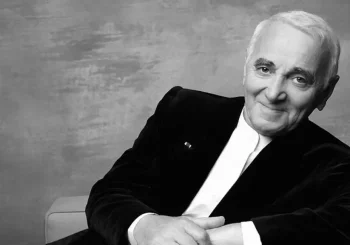“This is the kind of music I’ll tell my children was from the best times,” one YouTube commentator remarked. Another added, “This is our Gen-Z Amr Diab.”
Since releasing his album, Cocktail Ghena’y (2024), last month and generating numerous viral TikToks and comments about the man behind the anonymous mask, TUL8TE’s unconventional approach prompts us to ask: what defines an artist today?
Some might argue it is the star qualities: the personality, charisma, look, and glamour. But for TUL8TE, and especially for Gen Z audiences, it is the authenticity and novelty of the music that takes precedence.
In 2024, artists globally have generally adopted two distinct strategies for album rollouts. One approach involves a heavy marketing campaign with numerous photoshoots, performances, magazine interviews, radio appearances, and a meticulously planned release strategy for each single, complete with unique visuals.
In contrast, some artists, like TUL8TE, have let their music and creative direction speak for themselves. TUL8TE, for instance, uses his album cover to evoke 90s romantic pop nostalgia. His cover, featuring him holding a rose against a vintage rosy backdrop, taps into the growing internet nostalgia for the 90s while maintaining a light-hearted, humorous vibe.
For years, Arabic music often became repetitive and predictable as artists largely remained within their established genres. Rappers stick to rap, rock artists to rock, and folk musicians to folk music. But what if there were an artist who ignored genre boundaries altogether?
This is where TUL8TE’s latest album, Cocktail Ghena’y, stands out. In a music market where many artists and record labels are focused on creating an image to become widely liked by the public, TUL8TE’s album showcases an artist who is unconcerned with whether he is liked or disliked.
For example, some tracks on the album come across as romantic and dramatic, reminiscent of the melodramatic 90s Arabic pop style. In the track “Leh Benkhaby” (Why Do We Hide), a lyric goes, “It’s impossible to let go of your hand or forget you. You’re my only love.” Others can also feel overly simplistic or generic, like the line, “All I want is for you to be by my side all the time,” in Nafs El Kalam El Baghaneeh (The Same Words I Sing).
It is unclear whether the album is a homage to 90s Arabic pop or a playful mockery. With its catchy rhythms and harmonies, it seems to pose the question: is it wrong to enjoy simple, generic music? While guilty pleasures often are not a source of inspiration, TUL8TE’s latest album celebrates the joy of enjoying these pleasures without any shame.
T8LTE’s album highlights the paradox of music: a song that may seem generic or mainstream at one time can later be seen as a timeless classic that inspires future generations.
Whether the music’s quality has genuinely improved over time is a matter of opinion, but the reality is that people often feel nostalgic for even the most generic, lazily crafted songs.
It is not the kind of music that strikes you as a stroke of genius or prompts deep reflection. Instead, it is the kind you blast in your car at night, letting your thoughts and feelings drift away.
Even if you are not actively listening or focusing on the lyrics, the music has a way of making you feel dreamy.
Many artists strive to create music that achieves iconic or legendary status, but TUL8TE’s album feels different. It is as if he’s also a listener, making music that he genuinely enjoys and would listen to himself.







Comments (0)